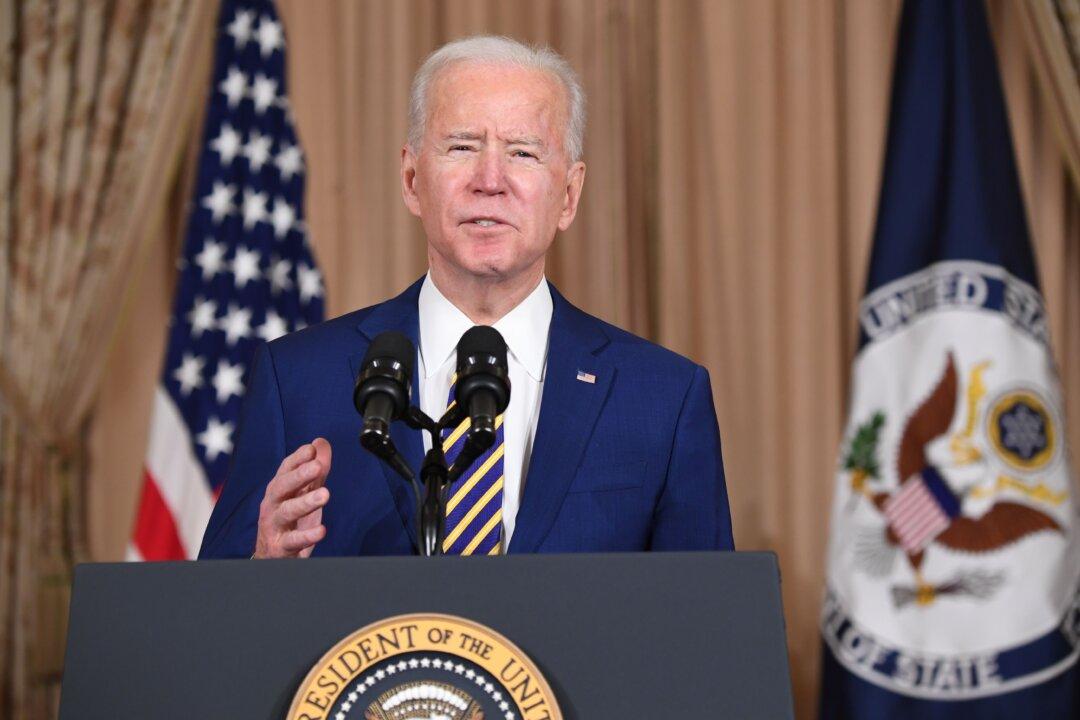President Joe Biden announced a slew of moves in his first major foreign policy speech, ranging from halting the withdrawal of U.S. troops stationed in Germany to ending support for Saudi Arabia’s military offensive in Yemen, as he sought to lay out his vision of global governance.
During his Feb. 4 speech—his first at the State Department—Biden signaled a different approach from former President Donald Trump’s “America First” agenda. He said the United States has begun “rebuilding the muscles of democratic alliances that have atrophied from four years of neglect and abuse.”





